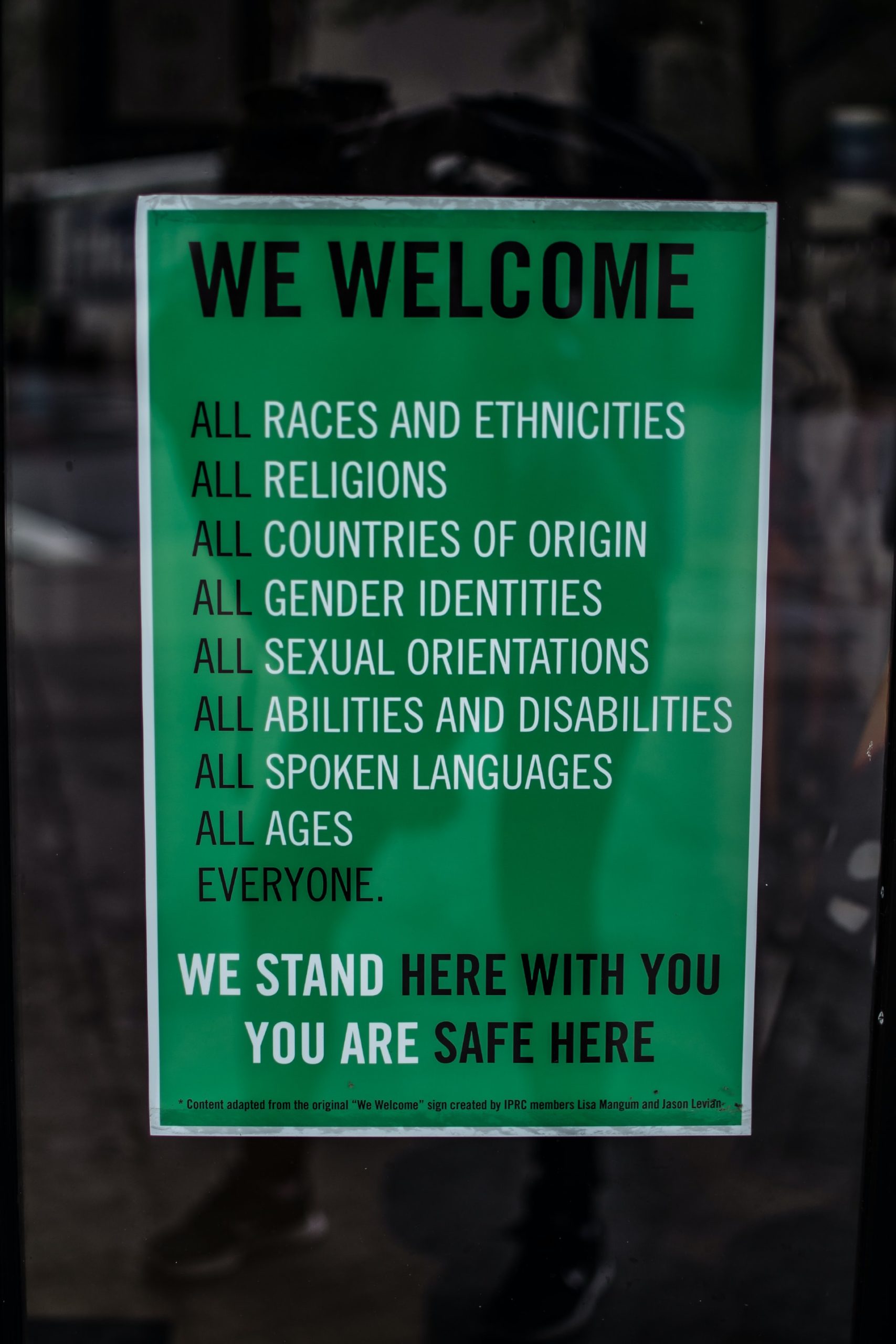-
We learned a lot from 2020, including how a pandemic has affected the workforce. As a result, the workplace will likely never be the same. We also faced another crisis as a social justice outcry forced us to examine issues surrounding diversity, equity, and inclusion. It brought these to the forefront, ultimately sparking the start of a massive, and much-needed, change.
Diversity, Equity, and Inclusion
Many, if not most, organizations are now looking within to identify whether they have a diverse representation of employees with inclusive policies that respect the equity of women, including visible minorities, Indigenous Peoples, persons living with disabilities and members of the LGBTQ2+ community.
- Diversity suggests perspective, representation, and support of inclusion, including the many ways people differ.
- Inclusion suggests the creation of environments that promote feedback and openness that support diversity.
- Equity suggests fairness, openness. and sameness, including valuing diversity and inclusion.
“Companies with more inclusive business cultures and policies see a 59% increase in innovation and 37% better assessment of consumer interest and demand.” – International Labour Organization
Employer Responsibilities
Employers now need to blend this topic into their corporate strategy. It is up to them to create a sense of belonging in the organization for all employees. After all, everyone thrives with a sense of belonging. This must be part of a cultural renovation to ensure diversity is embraced and gender norms, salary discrepancies, and past biases are non-existent.
Here are the ways employers must take action for an intentional strategy for improvement:
- Evaluating the reality of gender, race, pay equity, and inclusion competencies as they exist currently.
- Involving the entire workforce: this includes communicating a Diversity, Equity, and Inclusion (DEI) initiative to ask for ideas from employees at all levels.
- Educating leadership, human resources, and hiring managers to include an audit of existing direct reports and what opportunity exists to create DEI.
- Creating strategies on attracting, and then promoting/hiring diverse talent.
- Ensuring mandatory employee education courses are offered, internally or externally, as part of an annual awareness training requirement.
- Creating an ongoing steering committee/s to continue forward-thinking and ongoing cultural changes supporting DEI
- Ensuring representation is evident not only in staffing but in product offering, marketing and suppliers
- Uncover community opportunities whereby the industry in which the organization exists can offer mentorship to visible minorities or higher-risk youth.
- Creating a flexible work environment to accommodate religious commitments, childcare arrangements, medical appointments, volunteerism, and allergies.
- Implementing a respectful culture of using, understanding, and remembering preferred employee pronouns that regard and recognize identities, regardless of orientation.
- Auditing the physical workplace facilities for accessible entrances, accessible washrooms, gender-neutral facilities, and available elevators.
- Developing a dashboard of Key Performance Indicators (KPI’s) to measure and evaluate DEI, over a specific time period.
Positive Outcomes of a Diversity, Equity, and Inclusion Strategy
Then, there are four key things to look for in determining the success of a DEI strategy:
- A sense of pride by more informed and educated employees thus contributing to a positive internal culture due to employee engagement and trust.
- An empowered business image that is better equipped to build a more inclusive workplace, benefitting the organization and the community in which they exist.
- A bigger talent pool due to a restructured recruitment process to include more diverse candidates.
- A more diverse, yet qualified, workforce, including leadership, ultimately contributing to a broader perspective to decision making.
Finally, consider this statistic from Deloitte
“Diverse companies enjoy 2.3 times higher cash flow per employee, a 30% improved team performance and a 19% increase in revenue compared to less diverse counterparts.”
2020 taught everyone, including business, some very important lessons. Organizations have to ensure they are always listening. This is the best way to get insights from their employees and their communities.
Remember: awareness and learning should never stop, at every single level of an organization.
About Kris Schinke
Kris holds an MBA from Athabasca University and is a Distinguished Toastmaster. She is a Certified Everything DiSC® Workplace Facilitator working with X5 Management, an Authorized and Award-winning Partner of Everything DiSC® and Everything DiSC® Agile EQ™.
Everything DiSC® is a personal assessment that measures an individual’s tendencies and priorities. It’s designed to support an individual’s understanding of their work-related behaviours, the behaviours of others, and how to apply this knowledge in work situations.
According to Everything DiSC® knowing someone’s ethnic background, heritage or education will offer very little information about a person’s DiSC® style. With regards to gender, women received higher “Approach” scores and men received higher “Pioneering” scores. This was the most significant difference between genders.
Everything DiSC Agile EQ™ is a training and personalized learning experience that teaches participants to read the emotional and interpersonal needs of a situation and respond accordingly. Participants discover an agile approach to workplace interactions and learn to navigate outside their comfort zone.
Kris first took an interest in equality when she noticed, as a female executive and board member, she was in the minority. Often, she was the only woman on the team. She has noticed a small shift in gender equality and emphasizes fairness in DEI will take many years to achieve.
Kris attended Norquest College, Inclusion at Work in 2020, Calgary Queer Arts Society Learning Series in 2020 and James Harley & Mackenzie Harley Board of Director Inclusive Practices Training in 2021.
Did you enjoy reading about Diversity, Equity, and Inclusion?
Here are three more posts to read next:
Business Necessities in Diversity, Equity, and Inclusion




